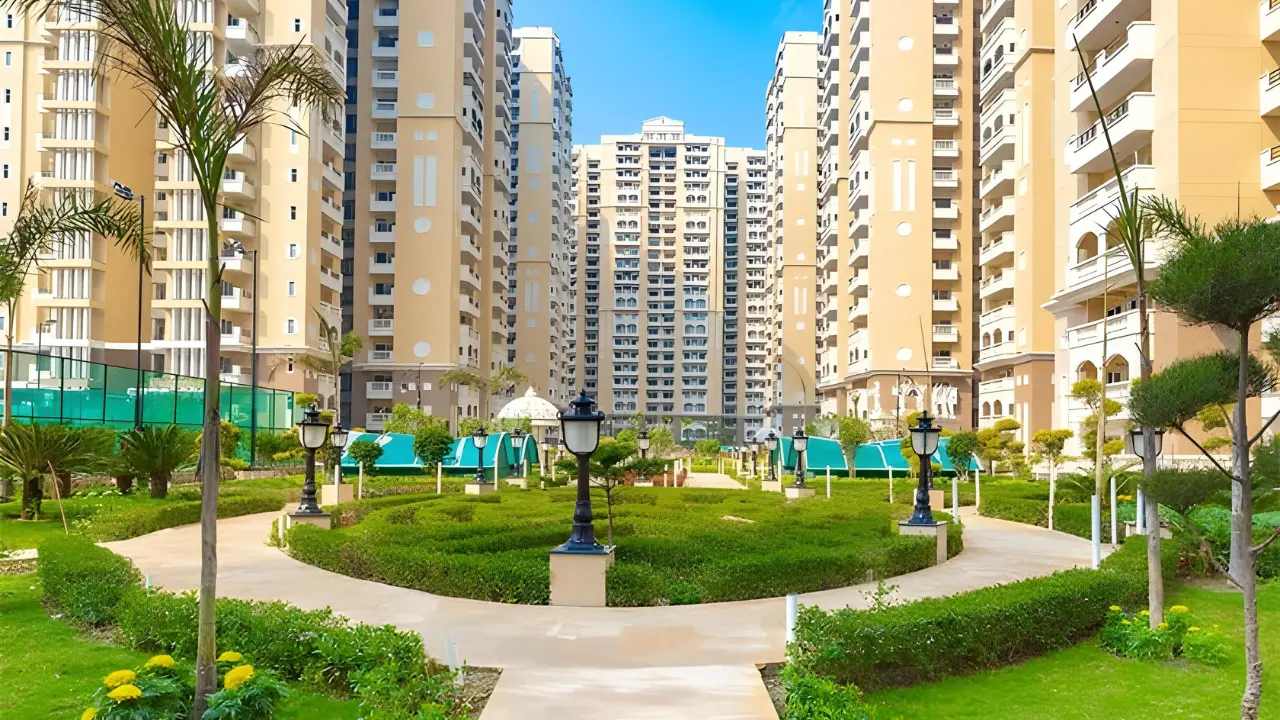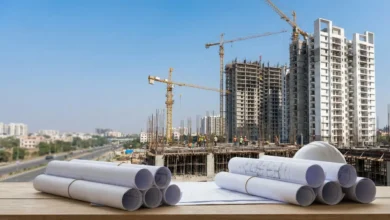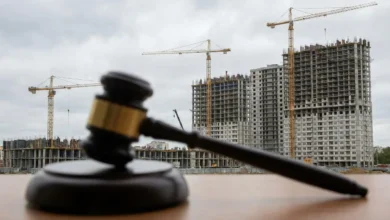Will RTI Finally Work Against Noida Societies? What That Haryana Judgment Means for UP Flat Owners

By Dr Ajay Kummar Pandey, Advocate, Supreme Court of India and Author of the Book “Property Law Unveiled“
Every other week, someone from Noida or Greater Noida walks into my chamber with the same story. The builder collected five years of maintenance advance and vanished. The Society committee won’t show accounts. Meetings happen without notice. Nobody knows where the money went. And the standard question: “What can we do?”
Until recently, the answer was discouraging: file a civil suit (which takes 5-7 years), try the consumer forum (which is overloaded), complain to RERA (which has limited powers for completed projects), or give up and pay whatever they demand. The recent Haryana High Court judgment in the Saraswati Kunj case has changed that conversation, but not in the straightforward way people think.
The Haryana Ruling and Why Everyone’s Talking About It
Last September, Justice Kuldeep Tiwari of the Punjab & Haryana High Court confirmed what housing society members have suspected for years—these bodies should be answerable under RTI. The Saraswati Kunj Cooperative Housing Society attempted to argue that it was a “private body” outside the scope of RTI. The court said no. If the Registrar of Societies can access your information under the law, citizens can access it through RTI.
What makes this interesting for UP is that Haryana has a 2012 societies law with Section 83 that explicitly says society documents are “public documents” under RTI. UP doesn’t have that. We’re still working with the Societies Registration Act, 1860, as amended in 1984, but without any RTI provisions.
So when clients ask, “Can I file RTI against my Noida society?” the honest answer is: probably, but you’ll have to fight for it.
Why UP’s Legal Framework is Messier
Here’s the thing about UP real estate law—we’ve layered three different frameworks on top of each other without properly figuring out how they interact. You’ve got the 1860 Societies Act under which many RWAs are registered. Then there’s the UP Apartment Act, 2010, which creates Apartment Owners Associations for most modern complexes. And now, RERA is overseeing everything for new projects.
I’ve spent enough time in the Allahabad High Court arguing over which law applies to a particular situation to know that this creates massive confusion. An apartment complex in Sector 76, Noida, may have an AOA under the Apartment Act but also be registered as a society under the 1860 Act, and the builder may still control both, while claiming RERA protections. It’s a mess.
But here’s why the Haryana judgment matters despite these complications. The core reasoning wasn’t just about Section 83. Justice Tiwari said the Registrar of Societies is a “public authority” with supervisory powers. In UP, that’s the Registrar of Firms, Societies and Chits—same deal, same powers, same statutory control. The logic applies.
Additionally, the UP Apartment Act requires AOAs to register with the authorities and file declarations. Plus RERA oversight for newer projects. You’ve got enough statutory control to make a strong argument that these bodies should answer RTI requests, explicit legislation or not.
What This Could Mean for UP’s Real Estate Nightmare
I wanted to share with you a case I handled last year. A decent project in Greater Noida, comprising approximately 500 flats, where the builder is still controlling the society three years after possession. Members wanted to see where their maintenance money went. Builder’s response? “We’ll show at AGM.” When’s the AGM? “Soon.” How soon? Silence.
Under current law, those members had to file a full civil suit. Expensive, slow, uncertain outcome. Now imagine if RTI were applied. They could demand maintenance accounts, vendor contracts, bank statements, and everything else. Within 30 days. For a Rs. 10 application fee.
That’s transformative. Not just for that case but for the entire sector. Think about what information apartment owners could get:
Builder collected maintenance advances for five years at possession? Could you show us where it went, with bank statements and proof of expenditure? Common areas handed over? Could you prove it with signed documents and photographs? Conveyance deed stuck? Please show us the documents that have been submitted to the authorities and what’s pending. Society elections manipulated? Produce the voter list, nomination papers, and counting records.
The implications for UP’s troubled projects are enormous. I’ve seen the Amrapali mess up close—billions vanished, thousands of buyers left hanging. RTI access to society and builder records might have exposed that disaster years earlier. The same applies to Supertech, Jaypee, and dozens of other stalled or problematic projects across Noida and Greater Noida.
But Here’s the Reality Check
I need to be straight about what happens next. Without explicit statutory language like Haryana’s Section 83, every RTI application to a UP society will initially be rejected. Could you count on it? Society committees often lack transparency (for obvious reasons), and many are unaware of what RTI stands for.
So you file. They reject. You appeal to the First Appellate Authority. They might reject. You go to the UP State Information Commission. Maybe they accept, maybe they reject. Either way, someone appeals to the Lucknow Bench or the Allahabad High Court. This process typically takes a minimum of 18-24 months, although it may be longer.
Which means we need test cases. Someone has to take the fight all the way through the system. Organizations like NOFAA have done excellent groundwork in analyzing the applicability of RTI to societies, but UP needs its own judicial confirmation.
The UP State Information Commission will play a crucial role here. I’ve appeared before them on other matters—if they start accepting these applications based on the Haryana reasoning, it establishes working applicability even before high court confirmation. If they reject everything, citing the absence of specific legislation, we’re in for a longer fight.
What Builders Should Be Worried About
I also represent developers sometimes, so let me put on that hat for a moment. The smart ones in UP—and there are some—are already nervous about this trend. Because even if UP courts take two years to confirm RTI applicability, it’s coming. The legal momentum is unmistakable.
Imagine you’re a developer who has been controlling society for five years after the handover, using maintenance funds for operational expenses on other projects, and keeping sloppy records. Now, apartment owners can demand five years of detailed financial records, vendor invoices, payment proofs, and all other relevant documents. Most societies I’ve seen have struggled to maintain clean records for five months, let alone five years.
Or you promised a conveyance deed within six months in your buyer agreements. It’s been three years. Buyers file RTI asking for the status of documentation, approvals obtained, pending requirements, and correspondence with authorities. What do you tell them? “Dog ate the paperwork”?
The exposure is real and immediate. Which is why I’m telling developer clients: get your house in order now. Maintain proper records from day one. Do clean handovers with full documentation. Stop treating maintenance advances as working capital. Because when RTI confirmation comes—and I think it will—you don’t want to be caught with your pants down.
A Practical Game Plan
For apartment owners in UP dealing with opaque societies or vanishing builders, here’s my advice. Start building your documentation now. Photograph every questionable expenditure notice, every meeting where proper procedure wasn’t followed, and every time they refused information. Keep copies of all payment receipts, possession letters, buyer agreements, and other relevant documents.
Resident groups should coordinate. File RTI applications systematically—maybe ten different societies across Noida and Greater Noida file together. Document the rejections. Appeal in coordination. Pool resources for legal costs. The more cases that move through the system simultaneously, the faster we gain clarity.
Organizations like apartment owners’ federations need to fund test case litigation. This isn’t about one society or one complex. It’s about establishing a legal principle that benefits hundreds of thousands of UP apartment owners stuck in similar situations.
And be realistic about timing. This isn’t a quick fix. The Haryana judgment was in September 2024. If UP cases start filing now, expect final high court clarity by late 2026 or early 2027. That’s frustrating, but it’s better than the decade-long civil suits we’re currently fighting.
Why I Think This Eventually Works
I’ve been practicing long enough to have some sense of where courts are heading on issues. The trend across Indian jurisprudence—in the Supreme Court and various high courts—is toward greater transparency, broader interpretation of “public authority,” and stronger protection for homebuyers.
The fundamental logic is hard to argue against. Apartment societies collect mandatory payments from residents. They exercise real power over where you live—can levy fines, restrict access, cut services. They operate under comprehensive statutory frameworks with government oversight and regulation. How are they materially different from a municipal corporation or cooperative bank that RTI clearly covers?
They’re not. Courts will eventually conclude that. Maybe not immediately, maybe not without a fight, but they will. The Haryana judgment shows the direction. Delhi, Maharashtra, Karnataka—other states will follow. UP might take longer, but we’ll get there.
Final Word
Look, I make my living partly from society dispute litigation. If RTI becomes easily accessible, it might reduce some of that work. But honestly? Good. These cases are exhausting and expensive for clients, and they usually arise from a fundamental information asymmetry that shouldn’t exist.
Society members shouldn’t need to file civil suits to see their own maintenance accounts. Apartment buyers shouldn’t need consumer forum cases to know if the builder actually handed over the building. This is information that people have a right to know about their homes, investments, and daily lives.
The Haryana judgment doesn’t directly apply in UP. We don’t have Section 83. We’ll need litigation to establish the principle. It’ll take time, possibly two years or more. But it’s a fight worth having, and one I think we’ll ultimately win.
For the thousands of apartment owners in Noida, Greater Noida, and Ghaziabad who are stuck with crooked committees and vanished builders, this judgment represents something we haven’t had much of lately: hope. Not false hope, not immediate solutions, but a genuine legal pathway toward accountability.
That’s worth pursuing. The alternative—accepting opacity, manipulation, and casual loot of homebuyers’ money—just isn’t acceptable anymore. It’s time for these societies to answer for themselves.

About the Author:
Dr. Ajay Kumar Pandey is an Advocate at the Supreme Court of India with extensive experience in UP real estate and society dispute litigation. He has argued matters before the Allahabad High Court, various consumer forums across Uttar Pradesh, and the apex court of India. He is also the author of the book “Property Law Unveiled”.
Advocate Dr. Ajay Kummar Pandey Tel: 9818320572
Website: https://www.drajaypandey.com/





